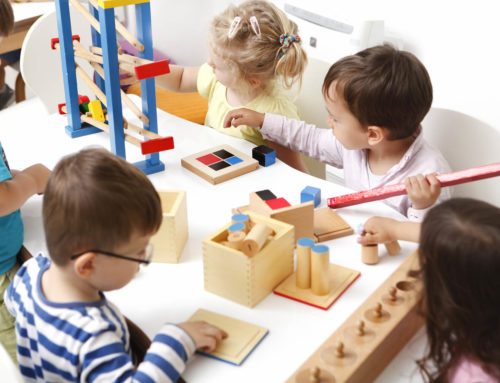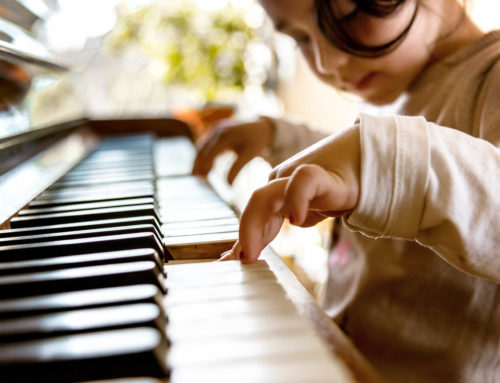By Vivian Cain
One of the most striking differences between a Montessori school and a traditional school format is the multi-age classroom setting. For those unfamiliar with the Montessori environment, it can be a bit perplexing to envision your child in a classroom with younger and older students.
One of the core beliefs behind the Montessori philosophy is that learning isn’t restricted by age but rather your child’s learning pace, interests, and personal development. This means that not only will your child learn social skills and unique perspectives they wouldn’t normally be exposed to in a traditional classroom, they will benefit from the following advantages of a multi-age classroom.
Leadership skills. If your child is older, you may worry that younger children in the classroom will distract your child or that the younger children will receive more attention and assistance. If your child is younger, you may be concerned that older kids may be impatient with them. At Maria Montessori International Academy, we rarely see these scenarios in the classroom. With manageable classroom size and engaging activities, older children often take on a leadership role to assist younger students.
Conversely, young children often imitate their older classmates in displaying these behaviors. As well, they learn to communicate effectively with classmates of all ages and recognize when they need to offer or seek help with a task.
Academic enrichment. Similar to leadership development, multi-age classrooms offer opportunities for your child to learn by teaching. Explaining a concept to others is one of the best ways for your child to understand and retain information. We encourage our younger students to observe the more advanced work that their counterparts are performing. This helps your young child begin to pick up on complex problem-solving skills, critical thinking, and reasoning abilities.
The multi-age environment also helps your child become more independent because he understands he has choices when confronted with a challenging task or question. Students also know they may approach a teacher, an older student, a peer or simply attempt to solve the problem on their own using the skills they’ve observed in the classroom.
Consistency. At Maria Montessori International Academy, as is the case with many other Montessori schools, your child will have an opportunity to bond with their teachers and classmates over the course of several years. This type of setting can encourage your child to build trusting and positive relationships. Your child will be familiar with the classroom environment, their teachers’ expectations and processes and the daily routine. This consistency provides a calm environment in which your child can focus on learning the topics at hand rather than familiarizing themselves with a new set of people, surroundings, and expectations every year.
Children learn best from the people around them, and this concept is deeply ingrained in Maria Montessori International Academy’s philosophy and practices.




